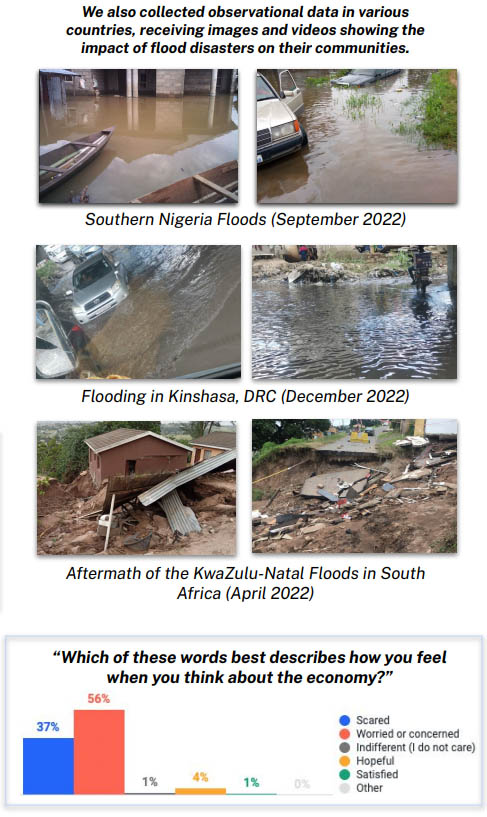Africa in Review: A look across the continent in 2022
Tracking Global Events | African Politics in 2022: Peace, Conflict and Democracy
The past year saw an array of important political and social issues arise across sub-Saharan Africa. News of conflict and political instability dominated headlines, but there were also positive developments, like the ceasefire in Ethiopia and peaceful elections in Kenya. In this report, we look back on sentiment collected by Premise around these events.
![]()
Massive Support for January Coup in Burkina Faso 🇧🇫
January saw a wave of protests in Burkina Faso, with demonstrators demanding the resignation of then-President Kaboré due to the government’s inability to stop armed insurgency and attacks. On January 23, a coup d’etat led by military officer Paul-Henri Damiba was launched, Kaboré was overthrown, and Damiba was declared Interim President.
Surveying 1,500 of our Burkinabé contributors, we found that 52% were in support of the coup while a combined 44% chose to either not answer the question or remain neutral. This left only about 3% in opposition.
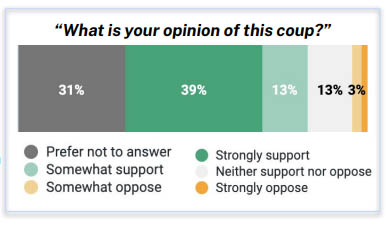
Hassan Sheikh Mohamud Returns to Power in Somalia and Vows to Promote Stability 🇸🇴
Hassan Sheikh Mohamud Returns to Power in Somalia and Vows to Promote Stability 🇸🇴
This was in line with the results of our survey ran before the elections that saw 49% of our contributors say they wanted peace and security to be the new government’s priority, with climate change issues in second place at 22%.
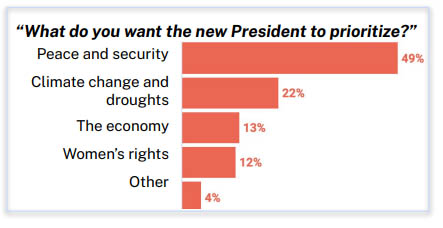
Kenya’s “Free and Fair” General Elections 🇰🇪
On August 9, Kenyans headed to the polls to vote for President, Governors, and members of the National Assembly. It was a very tight presidential race with William Ruta in the lead winning 50.5% of votes and defeating Raila Odinga who received 48.85% of votes.
Many of our Kenyan contributors seemed quite happy with the elections as 40% described it as completely free and fair, and 38% as mostly free and fair.
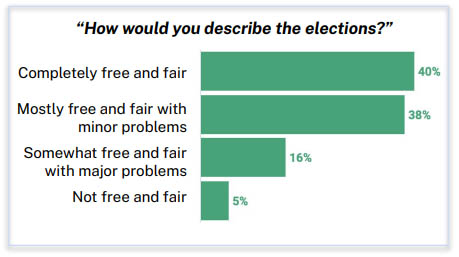
Second Coup in Burkina Faso as Damiba Loses Support over Failure to end Insurgency 🇧🇫
A few months after seizing power in January, public support for Damiba declined as his regime lost more territory to insurgents. On the 30th of September, several of the officers who had supported Damiba in the first coup planned a countercoup and brought an end to Damiba’s regime.
We ran another survey in Burkina Faso and once again saw massive support for this coup with many citing dissatisfaction with Damiba’s leadership as their reason.
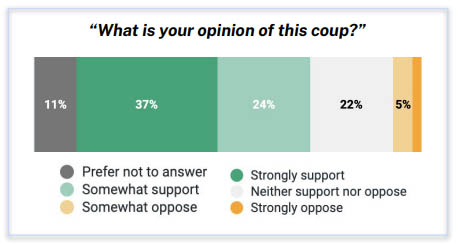
Ceasefire in Ethiopia 🇪🇹
On November 3rd, the Ethiopian government and the Tigray People’s Liberation Front (TPLF) agreed to a ceasefire, signalling the end of a 2 year long conflict that has left as many as half a million people dead, and at least 2 million people displaced or in need of humanitarian assistance.
We launched a survey to contributors in all regions of Ethiopia except the Tigray region where the internet has been shut down for many months and got insight to how people were affected by the conflict.
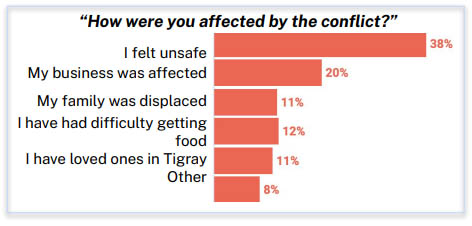
Mali’s Foreign Affairs 🇲🇱
In Mali, 2022 saw the military regime of Colonel Assimi Goïta strain decades of diplomatic ties with its allies:
- The Economic Community of West African States (ECOWAS) placed strict economic and financial sanctions on Mali in January. These sanctions were later lifted in July once the junta agreed to hold elections in 2024.
- In February, France announced that it would be withdrawing its troops from Mali due to an increasingly tense relationship with the Junta.
- Forty-nine Ivorian soldiers were arrested in Mali in July. Ivory Coast said the soldiers were in Mali to support a UN peacekeeping mission, while Mali’s Junta accused them of being mercenaries. In December, 46 of the soldiers were sentenced to 20 years in prison, while 3 of them were sentenced to death. This sentenced was later revoked by Goïta a few days later and the soldiers were released.
- In November, Mali banned the activities of all NGOs funded or supported by France.


Support for Wagner Group Presence in Mali and Burkina Faso 🇲🇱 🇧🇫
2022 saw an increasing presence of mercenaries fighting in conflicts across Africa, particularly a Russian private security group known as the Wagner Group. Despite frequent accusations of civilian abuses, Wagner fighters are active in parts of Mali, Mozambique, Central African Republic, and allegedly in Burkina Faso, although the Burkinabé Junta has denied being in talks with them.
We ran surveys in Mali and Burkina Faso, asking our contributor network for their thoughts on having “Russian Private Security Agents” in their country and found massive support for this particularly in Mali where 67% of our 1,000 respondents say they “strongly support”.
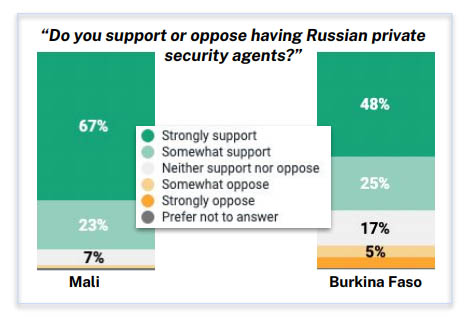
Tracking Global Events | Climate Change and the Economy
Rising sea levels, extreme weather, and changing rainfall patterns continues to pose a threat to food security, population stability, and socioeconomic development in Africa. While many factors like conflict and poor governance played a role, the impact of climate change can’t be overlooked. A number of African countries also faced major economic challenges in 2022, particularly Ghana, previously one of the fastest growing economies in the world.
![]()
Flooding and Other Impacts of Climate Change 🇨🇩 🇰🇪 🇲🇿 🇳🇬 🇿🇼 🇿🇦
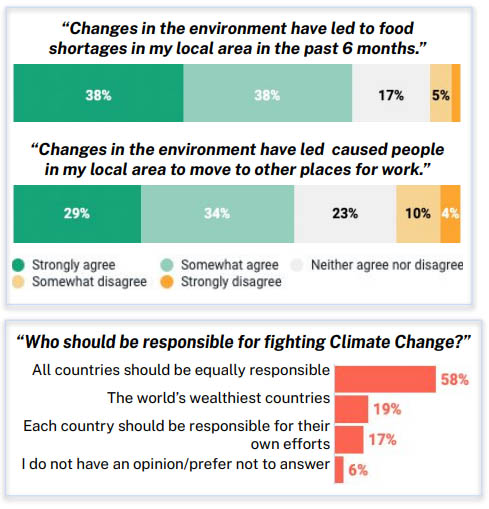
Ghanaians Worried Amidst Worst Economic Crisis in Decades 🇬🇭
In 2022, the Ghanaian Cedi was cited as the world’s worst performing currency as the country battled with high inflation. When asked how they would best describe their feelings around the economy, 56% of respondents reported feeling worried, and 37% reported feeling scared.
